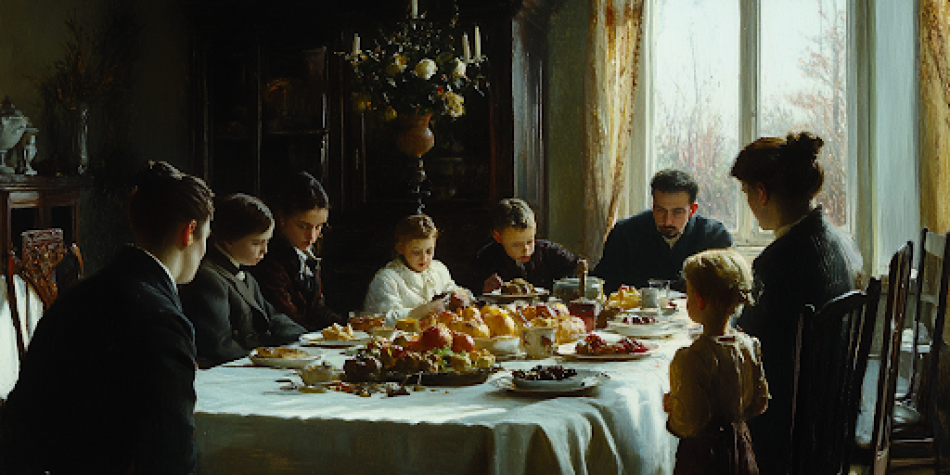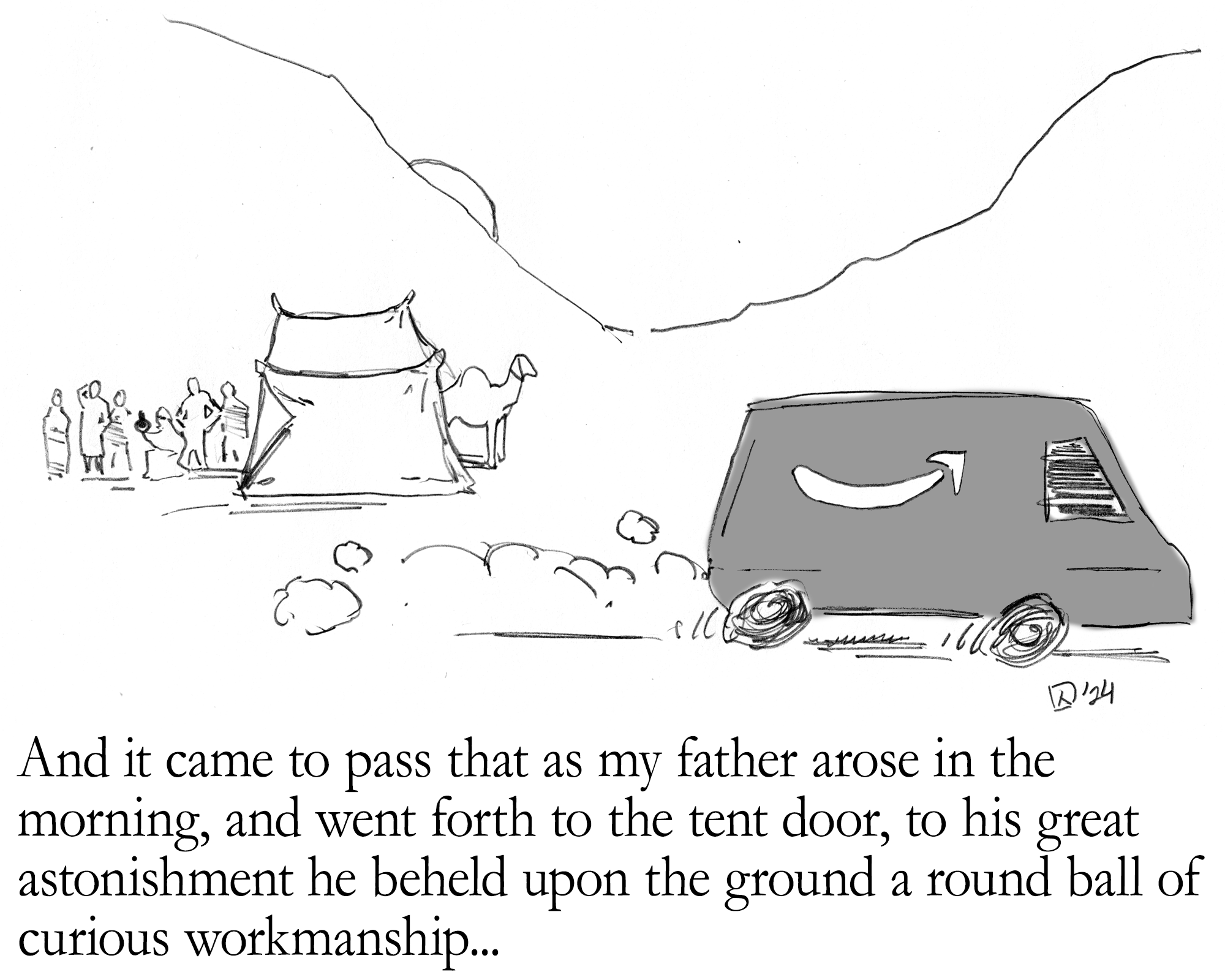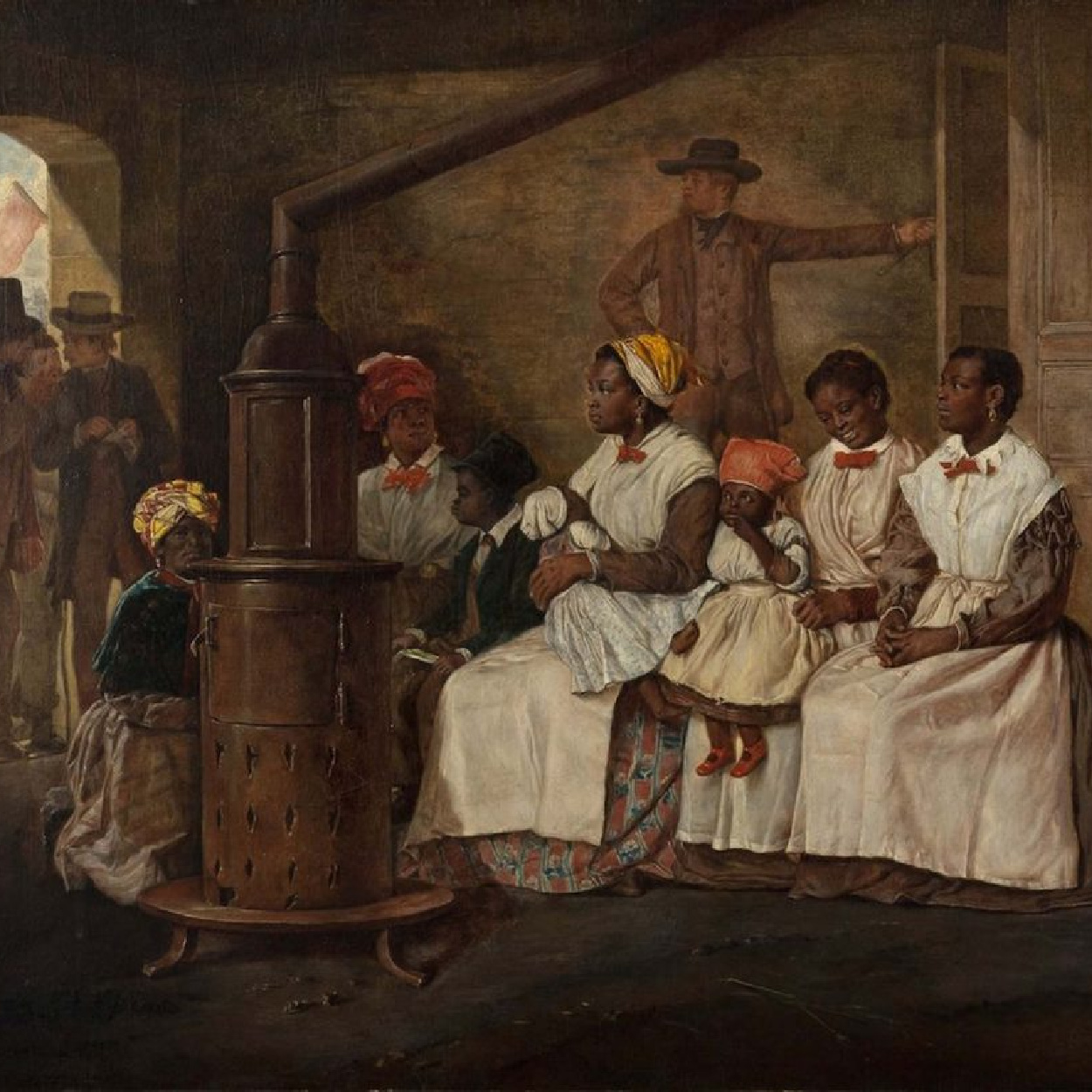Family is the fundamental unit of society. As the family goes, so goes society. Family-focused Thanksgiving and the celebration of the Prince of Peace are the two focal points of our holidays which can and should be our beckoning inspiration beyond our election season—our return to hope, faith, and rejoicing.
In the wake of a polarizing hyper-partisan election, where caustic accusations have been heedlessly hurled in the hopes of securing one more vote, an old and ugly anger threatens to breach the protected and protective space of home and family. The unmerciful activism of cancel culture is a social cancer, and now we’re being told to take it home—a cancel culture home brew that can strain and break our closest relationships, leading to decades-long rifts.
Following the election, some pundits and journalists (here, here, here) are suggesting that for their own emotional health, family members may need to leave their chairs at family gatherings conspicuously empty. Others seem to advocate it as a form of familial activism, silently exclaiming by their absence their aggravation and irritation toward family members whose political views and choices are seen as contemptible, wrong, and hurtful. Some go so far as to configure it as an imperative moral issue. Ultimately, toxic contempt and contention are being promoted. Some therapists view love withdrawal as inherently dysfunctional.
Whether posited as self-care, messaging, or retribution, heeding such supposedly “therapeutic” advice tempts us to only extend the political conflagration and turn family too into a scorched earth wasteland. Looking for somewhere to vent and someone to take the lash of one’s frustrations, family is, tragically, a convenient target, and the holidays are the immediately available venue.
As a therapist, I predict a poor outcome, but common sense will lead you to the same conclusion. Let’s be clear about this, we are being tempted to concoct a cancel culture home brew. How is that going to turn out? In the moment, we may say to ourselves, “I really don’t care,” but that may be rash and can lead to regret. The Family Proclamation warns against “the disintegration of the family” and calamities upon individuals, communities, and nations that follow. Relationship rejection and repudiation, shunning, and ostracizing, like many other human impulses, may be personally palliative in the short run but is no prescription for the long-term well-being of anyone. The actions pundits are suggesting will only severely complicate a family’s future. Burning bridges is never more unwise than in the relationships we rely on the most.
The pundits and media platforms on both sides of the political divide all thrive on “othering” and bogeyman narratives. Families, our most cherished, enduring, and essential attachment relationships, are torn apart by “othering.” Someday we realize that family is all we’ve got, and we emphatically say no to family “othering.” Cancel culture home brew is pure poison.
Make Family Our Starting-Point Solution
Instead, families are our starting-point solution, the place where respectful pluralism begins and is practiced and polished. Family relationships can become our fixed star to navigate by, reminding us that relationships are primary. The choices we learn to make in our families can chart a course to a transformative public pluralism and peacemaking. Family can be our starting point from which we generalize relationship commitment and pluralistic practices. Family can be where we come to see pathways forward, guiding us in revitalizing society. We must resist the pundits who suggest we traffic cancel culture politics into the home, however common the trope may be. Cancel culture home brew is pure poison.

Family Intervention
Let Thanksgiving for our family relationships and Christmas for the Prince of Peace help us get our bearings and refresh our relationship commitment to each other, even in the face of differences. Instead of becoming another front line in the battle, families can be our resort in times of trouble, our reminder of relationship priority and preeminence, and the relationship base from which we take our bearings and build outward and upward.
Families are our first introduction to pluralism. No family is a cookie-cutter replication. Each person is a unique encapsulation of humanity, personality, and experience, and the challenge and opportunity of pluralism only grows as the family grows. Adult children, the persons they marry, and the grandchildren that follow bring ever-expanding diversity and opportunity to put relationships first.
Instead of being the final casualty of our toxic politics, family relationships should be our reminder to lay politics aside at numerous critical junctures—such as home, church, and neighborhood—and refresh and renew ourselves in the joy of relationships that are so core and fundamental in our lives.
On the heels of our political calendar, a time-out moment can be helpful, yet (as pundits’ words tainted with grievance clearly show) time-outs all too easily morph into a cold-shoulder retribution and punishment, hoping to hurt. Therapeutic time-out is a relationship-affirming pause as one prepares to return and repair, not withdraw. “I love you. Our relationship is everything. I’ll see you soon (definitely for the holidays), just give me a moment to decompress”—should be the affirming message and transparent motivation behind time-out. Our priority values are constantly distilled, defined, and refined.
Part of building and renewing relationships is curiosity, expressed through attentive listening. The experiences that have shaped each person can be a rewarding point of engagement, a wonderful human story worth diving into. The world’s most awe-inspiring destination is the landscape of the human heart, the unfolding panorama of the eternal soul, the breathtaking beauty of love—these are life’s can’t-miss experiences. Thanksgiving can be about sharing our stories, remembering the joys, the humor, the love, and being there for each other.
In time, even our perplexity over our differences can become a point of interest, exploration, and growth. In the process, we find that our priority values are constantly distilled, defined, and refined. We realize that our enduring attachment bonds mean the most and we begin more regularly to make choices that avoid amplification of differences into the realm of discord or contention. As family members develop relationships of respect, love, and mutual appreciation, a higher path of political rapprochement opens up. Surprisingly, as we keep relationships first, opportunities and the ability to occasionally talk politics and to listen to each other with genuine interest increases.
Families are there for us. We love them. We get upset with them. But we should never disown them over politics. Any party, politician, pundit—or anyone else—that tries to come between me and my family, that tries to drive a political wedge, that suggests I should disassociate or disown them, that puts politics above family, is … wrong.
Let’s not yield the home front to toxic politics but rather make our relationship education and experience on the home front a springboard to a more civil society. Aspiring to a happy Thanksgiving and Christmas, consider these resources for peacemaking (here, here) and for further down the road (this, this, this). President Russell M. Nelson observes: “Contention is a choice. Peacemaking is a choice. … Anger never persuades. Hostility builds no one.” Elsewhere he invites: we can “interact with others in a higher, holier way, … [we can] choose to be a peacemaker, now and always.” If there is ever to be peace on earth—and there will be—it will begin and be learned in love at home—through relationships created and sustained not by an easy compatibility but by unbreakable bonds of love.

















